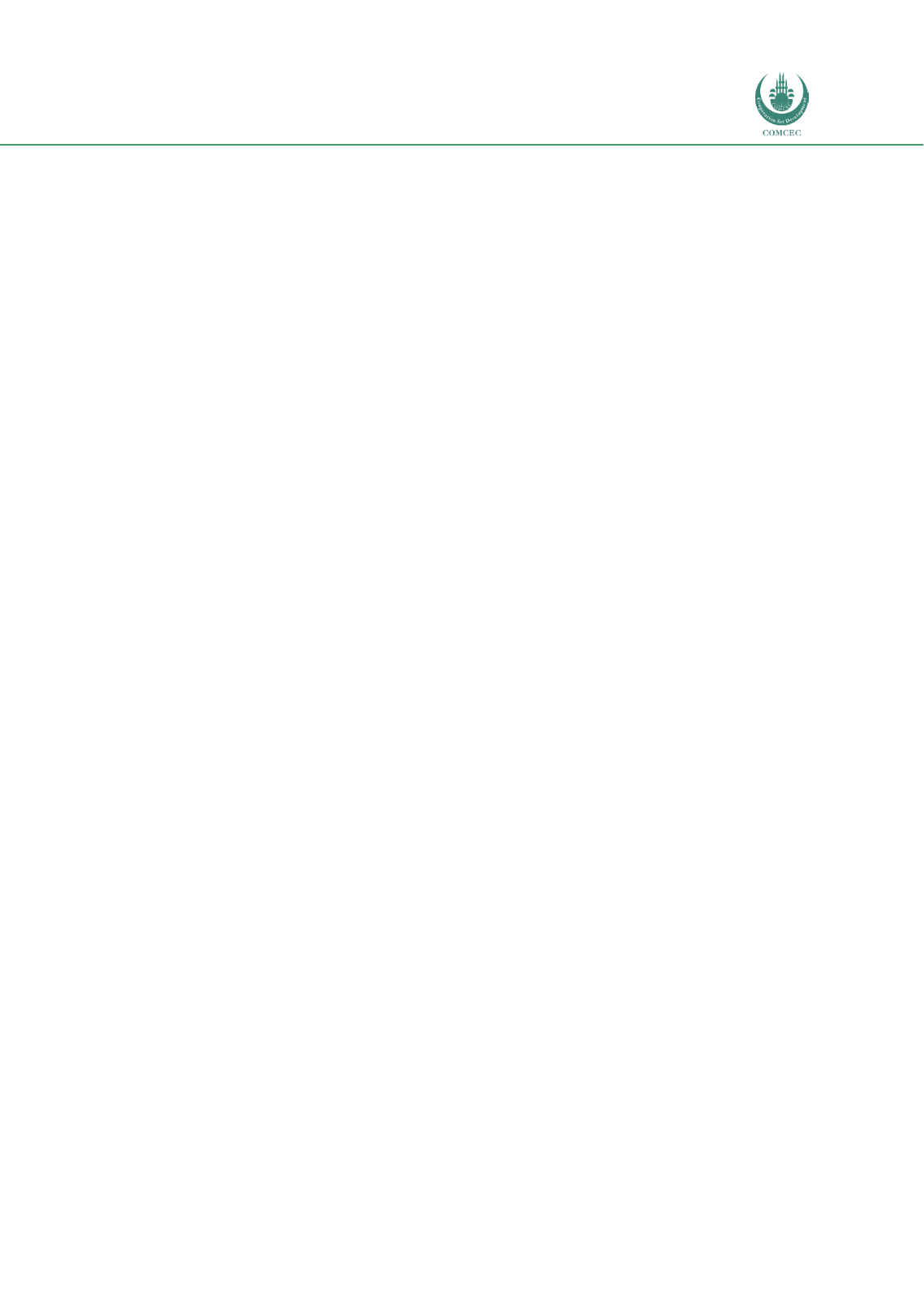

Infrastructure Financing through Islamic
Finance in the Islamic Countries
81
market authority, the Ministry of Finance as the government Sukuk authority, and the
Financial Services Authority (OJK) as the Islamic capital market (particularly corporate Sukuk)
and Islamic banks authority. The policies are compiled in the National Strategies to Deepen the
Islamic Financial Market (SN-PPK) to finance infrastructure projects and are briefly discussed
below.
Developing, strengthening and expanding instruments, transaction mechanisms and market
infrastructures:
Bank Indonesia and OJK have expanded the Islamic financial market
instruments to finance and to support infrastructure projects. OJK supports bank financing for
infrastructure by encouraging SOE to issue corporate Sukuk to finance infrastructure projects.
OJK Regulation Number 18/POJK.04/2015 on issuing and offering corporate Sukuk, later
amended by OJK Regulation Number 3/POJK.04/2018, eases requirements for public
companies to offer and issue corporate Sukuk. PJK Regulation Number 20/POJK.04/2015 of
OJK provides the rules for the variety of Islamic securities issuances including the requirement
for Islamic securities that are based on Islamic assets.
Furthermore, in order to support infrastructure financing through government Sukuk (SBSN),
the Ministry of Finance has also applied the Ministry of Finance Regulations (PMK) Number
16/PMK.08/2015 on
buyback
and the
switching
of SBSN to deepen the Sukuk market. With
such a PMK, (i) the government might buyback (cash buy back) SBSN and ease liquidity
problems in banks or (ii) SBSN holders may switch their SBSN with the other series. The
Ministry of Finance has also issued various series of Project Based Sukuk (PBS) to finance
government projects including infrastructure. Bank Indonesia regulations (PBI) Number
20/9/PBI/2018 deal with the Islamic Negotiable Certificate of Deposit (Islamic NCD) issued by
Islamic banks as the money market instrument to finance short term infrastructure projects.
Improving and raising investor confidence as well as the number of potential issuers:
The
Ministry of Finance, supported by Bank Indonesia and OJK have applied some policies to
increase investor confidence in the Islamic financial market, especially in the financing of
infrastructure projects and to attract potential issuers to issue Sukuk. Some of the initiatives
include developing online government securities and distribution channels to facilitate
transactions; facilitating and assisting municipal sukuk issuances to finance regional projects;
providing opportunities to issue sukuk-linked waqf and cash waqf-linked Sukuk; developing
and optimizing the Electronic Trading Platform (ETP); harmonizing tax treatment among
financial market regulators; and attracting potential investors such as the Indonesian
Pilgrimage Management Body (BPKH) since it manages more than IDR 100 trillion (USD 71
billion) in hajj funds that is available to be invested in government securities for infrastructure
financing. The policies are now being implemented by the three authorities (Bank Indonesia,
Ministry of Finance and OJK) and supported by other related bodies and market players such
as the National Sharia Board (DSN), Indonesian Deposit Insurance Corporation (LPS), BPKH,
and the Indonesian Ministry of National Development Planning (Bappenas).
4.1.5.
Roles of Islamic Finance in Infrastructure Financing
As shown above, while a significant part of the funding for infrastructure comes from the
government budget and the Ministry of Public Works implements the projects, infrastructure
such as airport, water and electricity, and roads are commonly developed and maintained by
state-owned enterprises (SOE). The remaining infrastructure can be financed by the private
















